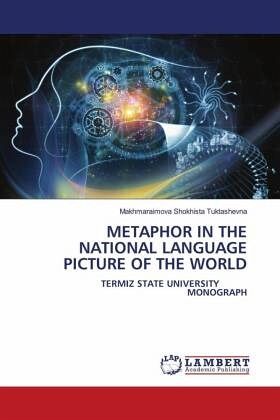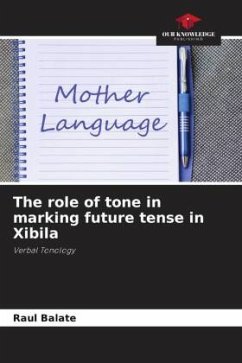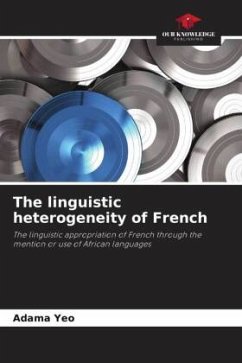
METAPHOR IN THE NATIONAL LANGUAGE PICTURE OF THE WORLD
TERMIZ STATE UNIVERSITY MONOGRAPH
Versandkostenfrei!
Versandfertig in 6-10 Tagen
40,99 €
inkl. MwSt.

PAYBACK Punkte
20 °P sammeln!
This monograph is the product of a study conducted to test the cognitive patterns of the mechanism of the emergence of metaphors in the Uzbek language, determine the place of concepts formed through metaphorical derivative names in the national language picture of the world, assess the anthropocentric nature of the metaphor, substantiating that this is a particular way of knowing, an essential lingua-cognitive phenomenon, categorizing the world. It expresses scientific and theoretical views that serve such tasks as checking the gradual development of the metaphorology of the world; a critical ...
This monograph is the product of a study conducted to test the cognitive patterns of the mechanism of the emergence of metaphors in the Uzbek language, determine the place of concepts formed through metaphorical derivative names in the national language picture of the world, assess the anthropocentric nature of the metaphor, substantiating that this is a particular way of knowing, an essential lingua-cognitive phenomenon, categorizing the world. It expresses scientific and theoretical views that serve such tasks as checking the gradual development of the metaphorology of the world; a critical review of studies on the study of metaphor in Uzbek linguistics; attitude to the mutual difference of cognitive and conceptual metaphors; determining the relevance of the metaphor to the human cognitive structure and language system; commenting on its nominative, emotional, communicative, cognitive, etc. functions.












